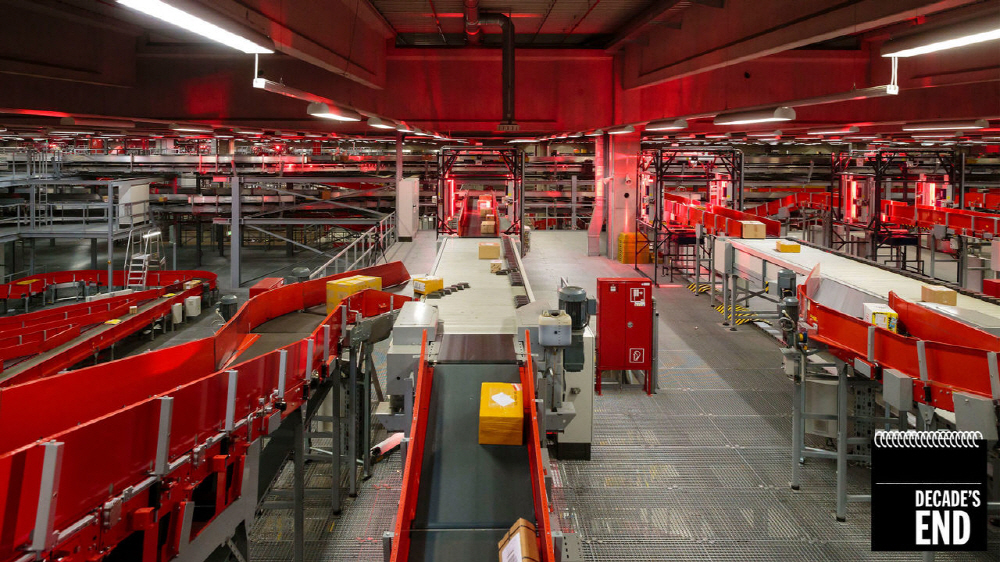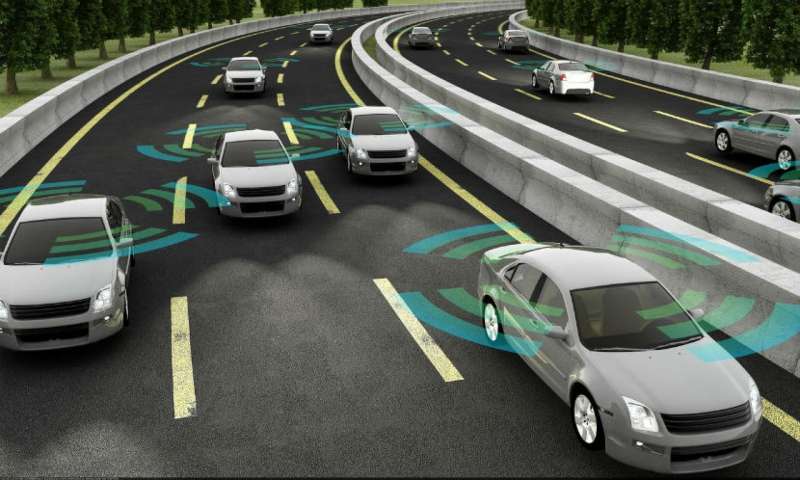How will life change in the next decade through technology in the 2020s? In the 2020s, advancements in AI will allow you to automate everything, respond to environmental issues, and actually use powerful genetic manipulation technologies.

First of all, what has been worrisome so far is that AI will evolve to automate various jobs and take away human jobs. Certainly, over the next decade, workers around the world will be destructively affected by AI and robotic technology. For example, according to the 2018 World Economic Forum report, as a result of automation, 75 million jobs worldwide will be lost by 2022. However, this report does not simply mean that work will go away, but there is also an expectation that 13 million jobs will be created. Therefore, as a result, the number of jobs for 58 million people is expected to increase.
Many say that they need to change their jobs and learn again. As for AI, it is not an alternative between humans and humans, but a trend is that humans and AI work together. In this respect, it is worth paying attention to the perspective of robot revolution rather than robot rebellion. It means that it is entering the era of an industrial revolution resembling the birth of a steam engine or a factory. The wave of automation and AI is applied to all areas of society, and humans can see efficiency gains as much as it was impossible.
If so, what will be replaced by robots and AI? The main reason is economic. From the manager’s point of view, if automation can reduce costs, it will be considered as a result of reducing staff. Mankind has already forgotten the pain of the first industrial revolution. In fact, amid the penetration of new technologies into society, jobs and roles in the workplace have begun to collapse, and voting behavior in elections is driven by various expectations, and new politics and ideologies are emerging with legal and ethical challenges in every scene. The next revolution is already beginning.
Also, as there is reaction to all movements, we will find ways to use them when we adapt to the changes in society and technology in the 2020s and recover. It will be necessary to adapt to new ways of working, changes in socio-economic dynamics, and the unthinkable appearance of housing and transportation.
The machine can do all of the automatic processing of various tasks such as work or investment, such as driving a car at will without human supervision and creating drivers like a secretary. A side effect of this evolution can also increase the perception gap between humans and machines. In other words, AI is getting smarter than humans, and this will not be a happy thing for humans.

In addition, the impact from the spread of autonomous vehicles and AV (Autonomous Vehicles) will also increase. Many industries can be affected, making unemployment inevitable. It is said that it will affect not only industries such as taxis and trucks that will be hit directly, but also related industries such as auto insurance, gas stations, and parking lots. The spread of AV will also change the access of people and families to transportation. In the near future, the cost of owning AV will be difficult for middle and low-income people, and may delay self-purchase and choose a shared system. The advantages of AV are various, but there are also risks, such as improving safety and providing means of transportation to those who cannot drive. A malicious hacker could become a weapon if cyber terrorists take control of a car. The vast amount of data created by AV also has serious privacy concerns. Depending on the government or local government, there may be places that provide laws regulating autonomous vehicles.
Cars traveling on the street detect each other and move harmoniously to avoid collisions, and individual movements are slower than now, but it is predicted that they will safely meet the needs of users. One expert also says that the appearance of homes in the 2020s has also changed drastically, so it can become common for many people to live in cars. The younger generation says they don’t have enough money to live at home, more people work as freelancers, and they will be able to do so anywhere with an internet connection. Using a car that will serve as a new home or office enables digital nomadic life, which could breathe new life into the city. It is expected that you may experience a new camping life that has never been before.
Next is deep fakes and human hacking. Fake news and deepfake videos created by AI not only have an unprecedented blow to democracy and social unity, but also become important in privacy, safety and security. Large-scale social engineering attacks targeting billions of users with chatbots using personalized profiles could explode. Hacking targeting not only computer networks but also human consciousness can increase rapidly. Spreading a virus using a red lie.
As a result, companies like Facebook will be asked to take more responsibility against those who are harmful to their platforms, and democratic countries will struggle with strategies to protect their citizens from digital threats.
Deepfakes, which make most or all of them into synthetic videos, expand at a rapid rate, so that people who want to manipulate public opinion do not touch Twitter, but bots or algorithms that create, reinforce, and amplify small subcultures that lead their ideas or creeds to a more widespread desired direction. Acceleration may occur.
In addition, it is possible for ordinary people and experts to not understand AI, so the AI black box problem can become a big theme in the 2020s. The question of explaining why AI makes such a conclusion may grow in the future. Humans can be separated from AI’s decision-making framework. However, it is also true that the possibility of AGI (Artificial General Intelligence) or ASI (Artificial Super Intelligence) coming out in the 2020s is quite low.
AGI is an artificial intelligence with a wide range of capabilities, and ASI is one level or superior intelligence than human-level functions. AGI may be able to control it, but it is still unclear whether humans will be able to control it once ASI emerges. It is highly likely that AGI will not appear in the 2020s, but it is necessary to prepare in advance. Futurist Ray Kurzweil predicted that until around 2045-2050, no machines with more intelligence than humans would come out.
In the 2020s, social awareness about the dangers of powerful AI will rise rapidly. However, Jaan Talinn says the next decade will not be dramatically different from the last decade. It is predicted that technology in the 2020s will be a gradual improvement of commercially valuable technology. Biotechnology, nanotechnology, and AI are the targets. Another expert predicts that the 2020s will be the last decade for humanity to take control of AI. The higher the AI’s ability, the more deeply it will depend on life.
The threat of AI could increase in the 2020s, but so does climate change. Unfortunately, in the 2020s, natural disasters and uncomfortable situations such as heat waves, droughts, rising sea levels, typhoons, floods, and forest fires may become more frequent. Countries around the world aim to reduce carbon dioxide emissions to prevent climate change, but there is a high possibility that the status quo will continue without this. In addition, attempts to solve the environment with technology will begin. Examples include technologies that increase cloud reflection, increase living organisms that absorb carbon dioxide by spilling nutrients into the sea by constructing huge reflectors in outer space, and technologies that reflect sunlight by injecting a stratospheric aerosol. The problem with these geoengineering and geoengineering methods is that if they fail, they might worsen the environment. You can’t quit once you start again. In the 2020s, signs or specific methods of attempting geoengineering will be actively discussed.
Another problem is that while the world may be able to join forces to reduce CO2 emissions, reaching targets could lead to climate delays that don’t take effect right away. The challenge of climate problems facing the next decade is delay. Even if carbon emissions are calculated, there is a time difference that affects the temperature. Even if humans stop emitting all carbon today, it is likely that the temperature will continue to rise for the next 20 to 30 years.
This can be both an environmental issue and a political issue. The people sometimes have to agree to make a big difference in their lives, even at the expense of something, but if nothing happens right away, politicians know what to do.
The bio field also continues to evolve in the 2020s. The first or second generation of genetically engineered babies is expected to take the next generation, but there will be considerable progress over the next 10 years. Customized medicine and precision medicine could emerge in the 2020s. Customized medical care is tailored to everything from the cause of the patient’s disease to heredity, environment, and lifestyle. This is mainly done through genetic analysis, and AI will play an active role here. Machine learning algorithms find patterns in massive data, and healthcare workers complete personalized treatments.
In addition, the gene editing tool CRISPR will continue to be a hot topic for the next 10 years. New drugs or approaches tailored to individuals based on CRISPR may be able to treat difficult hereditary diseases such as erythrocyte anemia or cystic fibrosis disease. In the agricultural field, it is possible to apply CRISPR to produce nutritious and robust crops, and to create a spinning wheel drive to control the transmission of infections such as malaria. Gene drive is a technology for inheriting a specific gene more widely, and the first case of genetic modification of mosquitoes and the like in the 2020s may come out. However, it may be necessary to discuss responsibility for various applications through open discussions on the use and regulation of gene drives.
Finally, understanding of space in the 2020s could be dramatically improved. Next-generation telescopes, such as the James Webb Space Telescope and the European Extra Large Telescope E-ELT, may be able to redefine our knowledge of our galaxy. The evolution of computing will also play a role in reinforcing the exploration of extraterrestrial life. Space exploration in search of extraterrestrial intelligent life could be accelerated in the future. In this regard, the next decade may have a high probability of determining whether we are the only intelligent life in the universe.

